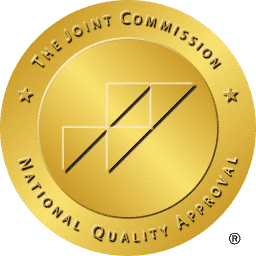What is Morphine Sulfate?
Morphine sulfate is a powerful pain-relieving medication that belongs to the narcotic analgesic class of drugs. It is derived from the opium poppy plant and acts by binding to opioid receptors in the brain and other tissues to modify the body’s response to pain. If you have moderate to severe pain, your doctor may prescribe morphine sulfate to help manage your symptoms effectively.
Morphine is Prescribed for Severe pain
Morphine is prescribed for pain relief. Patients take morphine to relieve pain they are experiencing typically from an injury, surgery, or in some cases cancer patients.
What is the difference between morphine and morphine sulfate?
There is no difference. You use the word morphine (also known as morphine sulfate) when it comes from the opium poppy plant as stated above.
Morphine Extended Release
Morphine extended-release tablets brand name is MS CONTIN® (morphine sulfate extended-release tablets also known as morphine pills) and capsules are only used to relieve severe (around-the-clock) pain that cannot be controlled by the use of other drugs.
Morphine extended-release tablets and capsules should not be used to treat pain that can be controlled by medication that is taken as needed for pain relief.
Opioid Analgesic REMS (Risk Evaluation and Mitigation Strategy) Program
All drug information regarding dosage for Morphine is available under a restricted distribution program called the Opioid Analgesic REMS (Risk Evaluation and Mitigation Strategy) program. This product is available in the following dosage forms: Tablet, extended-release Tablet Capsule, extended release, and 24 HR Solution Capsule extended release capsules.
Morphine Sulfate Sustained release
A sustained-release tablet formulation containing the sulfate salt of the opiate alkaloid morphine with analgesic activity. Morphine binds to and activates the mu-opioid receptors in the central nervous system (CNS), thereby mimicking the effects of the endogenous opioids.
Morphine Sulfate Intravenous Use Dosage and Administration
Direct Intravenous Injection: The usual starting dose in adults is 0.1 mg to 0.2 mg per kg every 4 hours as needed for pain management.
The dose should be adjusted according to the severity of pain, the occurrence of adverse events, as well as the patient’s underlying disease, age, and size.
If a there is a missed dose of morphine it is suggested to wait until the next dose. A missed dose of morphine can cause adverse effects.
Dosage Forms and Strengths by mg ml
Morphine Sulfate Injection USP, 2 mg/mL, 4 mg/mL, 8 mg/mL, 10 mg/mL, and 15 mg/mL, is available in single-use CarpujectTM and iSecure™ syringes for intravenous administration.
Morphine Side Effects
These are the most common morphine side effects:
- Drowsiness
- Abdominal pain and cramps
- Dry mouth
- Difficulty urinating or pain when urinating
- Nervousness
- Headache
- Small pupils (black circles in the middle of the eyes
- Mood changes
Drug Interactions
The drug information for a list of drugs with potential drug interactions with morphine is currently over five hundred. There are many drugs and lifestyle choices that may increase your risk of interactions. In addition to opioids, there are also other drugs and supplements that may interact with morphine.
Medications Known to Interact with Morphine Sulfate
There are just under 200 major drug interactions with morphine
There are just over 300 moderate drug interactions with morphine
There are 7 minor drug interactions with morphine
Drug interactions with morphine can be dangerous, so it is important to consult with a healthcare provider before starting any new medications or supplements.
Morphine interacts with other pain medications, including alcohol. To drink alcohol, use narcotics, muscle relaxants, or antihistamines, with morphine will increase the chances of these interactions and require emergency medical help.
Alcohol may increase the effects of morphine on the central nervous system. If a combination of these drugs is taken under the guise of pain relief, the result could be severe side effects and even death. This is why it is so important to talk to your doctor if you suspect a drug interaction.
Morphine Can Cause Respiratory Depression
While morphine does not have a significant effect on blood pressure or heart rate, it can cause respiratory depression in opioid-naive patients. Increased doses can intensify respiratory depression. However, morphine is a safe pain-relieving drug because its tolerance builds quickly. This means that if the dose is titrated, a patient may not have to experience any of these adverse reactions.
Morphine Addiction
While taking morphine for pain does not make you an addict, it can lead to opioid addiction and abuse. In the wrong hands, morphine can lead to fatal overdose and breathing problems.
Is Morphine Addicting?
As a CNS depressant morphine can cause physical dependence from both the immediate release morphine as well as the intravenous morphine.
Doctors should use the lowest effective dose as quickly as possible to prevent abuse and addiction. Morphine ER doses (emergency room doses) vary based on circumstance and severity of illness. Because this opiate drug is often used for extreme pain it is highly monitored.
Here are some signs of morphine addiction and when you need to seek help. If you suspect you have morphine addiction, please call CarePlusNJ and meet with our addiction specialists.
The First Sign of Morphine Addiction
Is morphine addictive? Yes. The first sign of morphine addiction is drowsiness.
The drug works on the opioid receptors in the brain. It’s most effective in suppressing pain signals and causes the body to produce endorphins, which are the brain chemicals that cause a pleasurable high. Similar to alcohol addiction this substance use disorder effects the central nervous system and can cause physical dependence.
Unfortunately, this high can also make the person numb and dependent on the drug. If you’re experiencing any of these symptoms, please call CarePlusNJ.
Common Signs of Morphine Addiction
There are several common signs of morphine addiction, including changes in lifestyle and personality. Those who abuse morphine may have periods of alertness and unconsciousness that alternate. It can also cause circulatory inflammation and collapsed veins, which increase the risk of blood-borne diseases. Those who use morphine in excess may have diarrhea or cramps. Some abusers may also have an extreme desire to spend money.
Morphine abuse is a clear sign someone may be developing an addiction to Morphine. Abusing morphine means taking more than a doctor prescribed. This may include mixing it with alcohol or other drugs.
Can you smoke morphine?
Other common ways to abuse morphine are smoking, snorting, or injecting. Eventually, a person may need to get refills more frequently than they were prescribed. If you notice any of these signs, you may have an addiction to Morphine.
Morphine Withdrawal Symptoms
Once a tolerance develops, users will experience withdrawal symptoms when they don’t take Morphine, making it hard to quit.
The physical symptoms of withdrawal from morphine will depend on the strength of the drug’s effect on the body. Symptoms may occur within 48 to 98 hours after a morphine intake, but these will subside within a few days.
The psychological dependence of Morphine can last much longer, and you may continue to think about the drug frequently, despite its negative effects.
The symptoms of morphine withdrawal can be severe:
- Sleeplessness
- Anxiety
- Nausea and Vomiting
- Stomach pain
- Diarrhea or constipation
- Sweating and chills
Life Threatening Symptoms
Taking opioid pain medicines is not without its side effects, and morphine is no exception. If you take too much of this medication, you could overdose and die.
Pregnant Women Should Avoid Morphine
During pregnancy, women should avoid taking morphine, as this can cause life-threatening withdrawal symptoms in the infant. Infants born dependent on opioids may need medical treatment for several weeks.
If you are breastfeeding, you should consult your doctor before breastfeeding your baby. During treatment with morphine, make sure to follow all instructions on the prescription label and the medication guide, and do not take more than the recommended dose.
Opioid Overdose
Opioids affect the part of the brain that regulates breathing. When individuals take high doses of opioids, it can lead to respiratory depression and death.
- Severe drowsiness, unusual sleepiness, or difficulty staying awake despite loud verbal commands
- Low blood pressure or slow heartbeat
- Serious breathing problems or slowed breathing
- Extremely small “pinpoint” pupils
- Slurred speech, mental confusion, or intoxicated behavior
Common symptoms of an overdose include:
- The face is extremely pale and/or clammy to the touch
- Pinpoint pupils
- The body is limp from extreme drowsiness
- Breathing and heart rate are significantly reduced or have stopped
- Lips or fingernails have a blue or purple color
- The person is making gurgling noises or vomiting
- Individual is unable to talk or cannot be woken from sleep
Getting Professional Help for Addiction to Morphine Sulfate
Substance Use Disorder and Opioid Use Disorder are very familiar diagnosis for our clinical team at CarePlusNJ. It is not uncommon to develop an addiction to morphine after a single dose. Signs of dependence include the ability to tolerate its effects and continued use despite serious consequences. A replacement drug can be prescribed to mimic the effects of morphine.
Treatment options such as therapy and counseling can be helpful in addressing addiction or any physical dependence on morphine. According to the Substance Abuse and Mental Health Services Administration (SAMHSA), the risk of HIV (Human Immunodeficiency Virus) infection increases by 53 percent after an initial morphine dose. There have been studies on the impact of long-term chronic morphine administration in regards to t-cell population dynamics.
CareplusNJ Addiction Recovery
Care Plus NJ, Inc. provides comprehensive, recovery-focused integrated primary care, mental health care, and substance abuse rehabilitation services. Our outpatient services are offered on a voluntary outpatient basis to adults and children at a total of 49 sites, including three outpatient centers, ten residential facilities, offices at three local hospitals, and seven community offices, all conveniently located throughout Northern New Jersey.
We are the only provider in Bergen County contracted by the State of New Jersey to offer a full range of primary health care services to adults with chronic mental illness. Our emergency psychiatric service in Bergen County ensures 24-hour accessibility.
Outpatient Withdrawal Management
Our specialized programs provide seamless access to services designed to support wellness and recovery in all aspects of life. We do not provide long term opioid treatment however we are a Medication-assisted treatment (MAT) center. Our doctors are very experienced in the treatment of opioid use disorders (OUD). Upon evaluation, individuals and families are engaged in treatment planning to determine the most appropriate level of care, ranging from Early Intervention to Outpatient Withdrawal Management. Program support and follow-up care continues as needed.

Narcotic Analgesics
Narcotic analgesics are drugs that reduce pain. There are two types of narcotic analgesics: opiates and non-opiates.

Dilaudid
Dilaudid is an opioid medication used to treat pain. It is a semi-synthetic opioid that is structurally similar to morphine. It is usually given intravenously, intramuscularly or orally.
Dilaudid’s main component, hydromorphone, binds to opioid receptors in the brain and spinal cord, which decreases the perception of and response to pain.

OxyContin
Oxycontin is a medication that is used to help people with pain that is chronic. It is an opioid, which means it has similar effects as other drugs like morphine and heroin.

Actiq
Actiq is an opioid and should not be used for the treatment of pain that is chronic. It is only appropriate for short-term relief of severe pain.
Actiq (fentanyl) is a strong opioid medication prescribed to treat breakthrough pain in cancer patients who are already taking other opioids for their chronic pain.

CarePlus NJ, INC. is dedicated to excellence in mental healthcare and has a commitment to life-long support needed by individuals and their families to ensure that they achieve their full potential and improve the quality of their lives.









